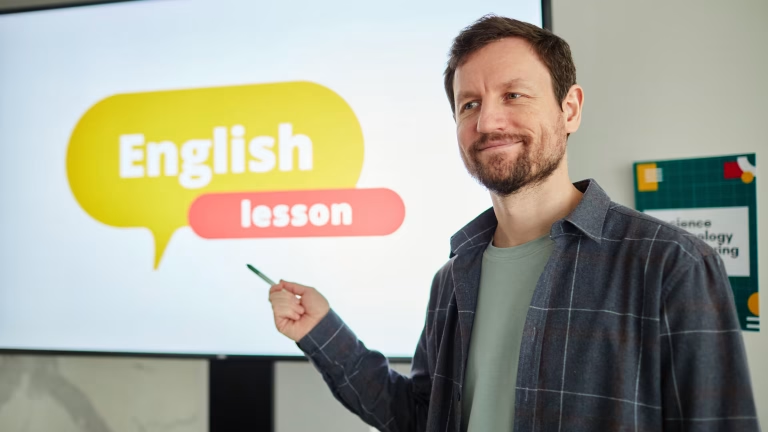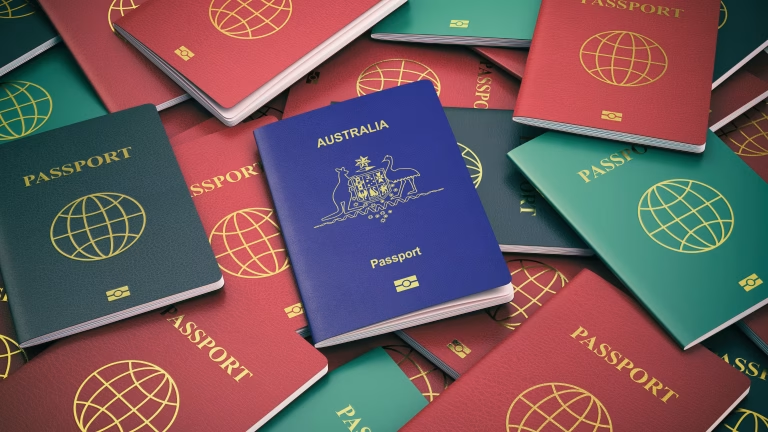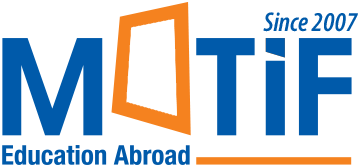
Key Takeaways
5. Get expert guidance to simplify the process and avoid visa delays.
Understanding the Genuine Student (GS) Requirement
The Australian government has a rule called the Genuine Student (GS) requirement.
It ensures that international students in Australia are genuinely committed to their studies.
Students must prove they have the required skills and funds for their studies.
To verify this, institutions or visa officers may interview students or review their documents. These questions help confirm that the student’s main goal is to study.
It ensures that they are prepared for life in Australia. Below is a simple breakdown of how the GS requirement is assessed.
That includes examples of questions students might face during interviews or document checks.
Key Assessment Criteria for the GS Requirement
Academic and English Language Proficiency

Does the student meet the entry requirements for their chosen course?
Students must show they have the right skills for their chosen course. First, they need to prove they can handle the academic work. Such as having good grades or previous study experience. If you’re applying for a Master’s in Engineering. Your Bachelor’s degree should be in a related field like Mechanical or Civil Engineering.
Is the course aligned with the student’s academic background and career aspirations?
The courses they pick should also make sense for their future. For example, if a student studied science in school, choosing a science-related program in Australia would be a logical next step. This helps show they’re serious about their education and career. Also not just applying for any random course.
What are the English language requirements for studying in Australia?
You must show good English skills to succeed in Australia. Tests like IELTS, PTE, TOEFL, or OET are accepted.
A minimum IELTS score of 6.0 or 6.5 is often required (depending on the course). If your score is too low. You may need to take an English preparatory course before starting your main program.
Financial Capacity

- You must prove you have enough money to pay for your first year of school fees. That includes living costs, health insurance, and travel. If your course is longer, you’ll need to show you can cover those costs for the entire duration.
- Figuring out how to pay for your studies. It includes parental support, taking a loan, or winning a scholarship.
Course and Career Alignment

Does the chosen course align with the student’s prior education, work experience, and career goals?
Your course must align with your past studies/work and future goals. For example, a business student pursuing an MBA makes sense. Switching to arts without reason may raise doubts.
Visa officers check if you’re genuinely studying. They wanna figure out you’re not just using the course to enter Australia. Explain any mismatches clearly to prove your intentions.
Is there clarity in the students’ study plans, and do they demonstrate how studying in Australia will benefit them?
The student must show a clear study plan that makes sense for their future. For example, if they want to be an engineer, studying engineering in Australia should help them reach that goal.
The visa officers check if the course will really benefit the student’s career, not just help them stay in Australia.
Immigration History

- Australian visa officers review your past visa applications, travel history, and whether you followed previous visa rules. This helps them assess if you’re a genuine student committed to studying in Australia.
- Australia’s student visa process has evolved to focus on genuine study intent. The immigration history is carefully reviewed. It includes past visa refusals or cancellations. This is to assess whether previous compliance issues could affect a new application. Transparency is key.
Personal Circumstances in the Home Country
- Strong ties to your home country. Like close family, stable job, or property. As it shows, you intend to return after your studies. This helps prove you’re a genuine student seeking education in Australia temporarily.
- The economic conditions back home. As it helps prove you’ll return after studies. Visa officers check if strong social or financial reasons ensure you won’t overstay.
Commitment to Studies

- A genuine student must show a clear understanding of their course. As that includes chosen institution and how their studies align with future career or academic goals. As it proves a serious commitment to their education in Australia.
- A genuine student must show strong motivation for their chosen course. That can be shown through well-researched goals, past academic/work experience, and a clear plan to succeed. That shows dedication to completing their studies in Australia.
Sample Questions for Assessing Genuine Student Intent
Academic and Career Background
Why did you choose this course, and how is it relevant to your previous education or work experience?
Your answer might be, “This course aligns with my academic background and career goals. As it builds on my previous studies/work experience. It will provide the skills I need to progress in my field, making it a logical next step.’’
Why did you select this particular university or college in Australia instead of institutions in your home country or elsewhere?
You can answer this like, “I chose this Australian university because it offers a globally recognized degree in my field. As it has better research facilities and industry connections than options in my home country. It aligns perfectly with my career goals.’’
What career opportunities will this course provide you in the future?
Your answer might be, “This course will help me gain the skills and qualifications needed for [your career goal] in [your home country or Australia]. It aligns with my past studies/work. As it opens doors to better job opportunities in a specific industry.”
Financial Capacity
Who is funding your education, and how will they support you financially?
Explain who (e.g., parents, scholarships, loans) is paying for your studies. Also, how they will cover tuition and living costs.
Can you provide evidence of your financial resources, such as education loans, savings, or sponsorship?
You must show proof of funds. Such as education loans, savings, or sponsorship to cover tuition and living costs in Australia. This helps prove you can support yourself during your studies.
How do you plan to manage your living expenses while in Australia?
You must prove you have enough funds. It can be through savings, parental support, scholarships, or part-time work (within visa limits). It is to cover tuition, rent, food, and other costs while studying.
Immigration History
Have you traveled abroad before? If so, for what purpose?
If you’ve traveled abroad before, mention the purpose (e.g., study, tourism) to demonstrate genuine intent.
Have you applied for any other visas? What was the outcome?
Your academic and career history should align with your chosen course in Australia. If you’ve applied for other visas, mention the outcome. This helps assess your genuine intent as a student.
Why did you choose Australia over other popular destinations like the USA, Canada, or the UK?
Australia offers high-quality education. It also includes a safe environment, post-study work opportunities, and a multicultural society. That makes it a top choice over the USA, Canada, or the UK for international students.
Personal Circumstances in Home Country
What are your plans after completing your studies?
You can say, “After my studies, I plan to gain work experience in Australia (if allowed) or return home to apply my skills. My long-term goal is to build a successful career in my field.’’
Do you have family members or dependents staying in your home country while you study?
Having family or dependents in your home country can help prove your genuine student intent. As it shows strong ties and a reason to return after studies. However, you must still meet all visa requirements.
What connections to your home country ensure your return after your studies?
Strong family ties, job opportunities, property ownership, or ongoing education commitments in your home country. As it helps prove you’ll return after studying in Australia. These connections show genuine intent to leave when your visa ends.
Knowledge About Australia and the Institution
What do you know about the city where your university or college is located?
Australia’s student visa now focuses on the Genuine Student (GS) requirement instead of GTE. GS assesses if you’re truly coming to study. Consider your academic goals, ties to home, and plans after graduation.
What specific resources or facilities at the institution attracted you to apply?
As you can say, “I chose this institution for its advanced labs, industry ties, and strong graduate outcomes. They align perfectly with my career goals in [your field].”
Are you aware of the cost of living in Australia, and how will you manage it?
You can answer with, “Yes, I understand Australia’s cost of living. I’ll manage it through savings, part-time work (within visa limits), scholarships, and family support. As well as budgeting carefully for accommodation, food, and transport.”
Supporting Documents Students Should Provide
To get an Australian student visa, you need to give certain documents. These show your qualifications, finances, and genuine intent. Here’s what you need:
Academic Records
Why They Matter: Academic records are important. They prove you qualify for the course. They also show how your past studies match your new plans.
What to Include:
- Certificates and diplomas: These show your highest education level.
- Transcripts: These show your grades and subjects from past studies.
- Qualifications: Any extra training or certifications related to the course.
Financial Evidence
Why It Matters: The Department of Home Affairs (DHA) needs proof you can afford your stay in Australia. This includes tuition, living costs, health insurance, and travel.
What to Include:
- Bank statements: Recent statements showing enough money for at least one year. Living costs are AUD 20,000–27,000 per year.
- Sponsorship letters: Letters from parents or sponsors explaining their support.
- Loan approvals: Official letters from banks confirming your loan.
- Scholarship letters: Proof of scholarships, if you have any.
Personal Statement (SOP)
Why It Matters: Your SOP explains why you want to study in Australia. It shows your goals and proves your genuine intent.
What to Include:
- Why you chose Australia: Talk about its world-class universities, research, or post-study work options.
- Course selection: Explain how the course fits your background and career goals.
- Future plans: Say what you’ll do after graduation and why you’ll return home.
English Proficiency Scores
Why It Matters: English tests show you can handle studying in English.
What to Include:
- Test results from exams like IELTS, PTE, TOEFL, or Cambridge CAE.
- Minimum scores:
- IELTS: 6.0–6.5 (depending on the course).
- PTE: 58–64.
Immigration History
Why It Matters: Your immigration history helps the DHA check if you’ve followed visa rules before.
What to Include:
- Copies of previous visas (student, tourist, work, etc.).
- Refusal or cancellation letters: Include explanations for any issues.
- Travel records: Show your past international trips.
How to Succeed in Meeting the Genuine Student (GS) Requirement
Meeting the Genuine Student (GS) requirement is a key step in getting an Australian student visa. It requires careful preparation, attention to detail, and understanding. We should meet the requirements of what the Department of Home Affairs (DHA) expects. Here’s how you can succeed:
Be Honest and Transparent
- Why It Matters: The DHA values honesty and transparency. Any lies or inconsistencies can lead to visa refusal.
How to Do It?
Provide Accurate Information: Make sure all details in your application are true. This includes:
- Your academic background.
- Your work experience.
- Your financial capacity.
- Your travel history. If you’ve applied for visas before (even if refused), disclose this upfront
- Avoid Exaggeration: Don’t overstate your qualifications, finances, or ties to your home country.
Avoid Over-Promising: Don’t make unrealistic claims about your future plans. For example:
- If you don’t have a job waiting for you after graduation, don’t say you do. Instead, focus on other strong ties, like family or property.
Be Consistent: Ensure your SOP, GTE statement, and supporting documents match exactly. Any mismatched dates or conflicting explanations will raise red flags.
Example: If you’re applying for a Master’s in Business Analytics but your degree was in Psychology, explain how your past education prepares you. Avoid vague statements like “I want to change my career” without giving context.
Prepare a Strong SOP (Statement of Purpose)
Why It Matters: Your SOP is one of the most important parts of your application. It shows your motivations, goals, and reasons for choosing Australia. A well-written SOP can strengthen your case.
How to Do It?
Structure Your SOP Clearly: Divide your SOP into sections:
Introduction: Briefly introduce yourself and your academic background.
Reasons for Choosing the Course: Explain why this course fits your previous studies and career goals.
Why Australia? Highlight benefits like world-class universities, research opportunities, and post-study work rights.
Future Plans: Outline your career goals and how this course will help you achieve them. Emphasize your intention to return home after your studies.
Personalize Your SOP: Avoid generic templates. Focus on specific details, such as:
- The modules or specializations that interest you.
- The reputation of the university or college.
- How studying in Australia will improve your skills.Highlight Career Alignment: Show how the course fills gaps in your current qualifications. For example: “I completed my Bachelor’s in Marketing but want to specialize in Digital Marketing. This course will teach me SEO, social media marketing, and analytics.”
Tip: Proofread your SOP multiple times. Ask mentors or professionals for feedback before submitting it.
Gather Comprehensive Documentation
Why It Matters: Supporting documents provide evidence for your claims. Without proper documentation, your application may lack credibility.
How to Do It?
Academic Records: Include certificates, transcripts, and diplomas from all previous institutions. If there are gaps in your education, explain why (e.g., medical leave).
Financial Evidence: Provide proof of your financial capacity, such as:
- Bank statements showing funds for tuition, living expenses, and health insurance.
- Loan sanction letters from approved banks.
- Sponsorship affidavits or letters from parents/guardians.
English Proficiency Scores: Submit valid test results (e.g., IELTS, PTE). It should meet the institution’s requirements. Ensure the scores are recent and not expired.
Immigration History: Disclose all previous visa applications, approvals, refusals, or cancellations. Attach relevant documents, such as refusal letters or explanations for issues.
Additional Documents: Depending on your situation, include:
- Work experience certificates (if applicable).
- Letters of recommendation from professors or employers.
- Proof of ties to your home country, such as property deeds or business ownership documents.
Tip: Organize your documents neatly and label them clearly. Use PDF formats for electronic submissions to maintain document integrity.
Practice Interview Responses
Why It Matters: During interviews with the Australian High Commission or university representatives. Your answers will be assessed for clarity, confidence, and consistency. Practicing beforehand helps you perform well.
How to Do It?
Here are some steps:
Anticipate Common Questions: Review sample questions. Like academic background, finances, immigration history, and personal circumstances. Examples include:
- “Why did you choose this course?”
- “Who is funding your education?”
- “What are your plans after completing your studies?”
Rehearse Your Answers: Write down your responses and practice saying them aloud. Focus on:
- Being concise yet detailed.
- Speaking confidently.
- Avoid memorized scripts—aim for natural conversation.
Prepare Supporting Examples: Use real-life examples to support your answers. For instance: “My uncle owns a software company in India. He has offered me a managerial role after I complete my Master’s in IT.”
Simulate the Interview Environment: Conduct mock interviews with friends, family, or counselors. Record yourself to identify areas for improvement.
Tip: Dress professionally for the interview and arrive early to avoid stress. Carry copies of your supporting documents in case the interviewer asks for them.
Seek Professional Guidance
Why It Matters: Navigating the GS requirement and student visa process can be complex. Professional guidance ensures you meet all criteria and avoid common mistakes.
How to Do It?
Here are some steps:
Consult Education Counselors: Education consultants can help you:
- Choose the right course and institution.
- Draft a compelling SOP.
- Organize supporting documents.
Engage Migration Agents: Registered migration agents are experts in Australian visa laws. They can:
- Review your application for compliance with DHA requirements.
- Advise on addressing potential red flags (e.g., previous visa refusals).
- Represent you during communications with the DHA or High Commission.
Research and Verify Credentials: Before hiring a counselor or agent. Check their credentials and reviews from past clients. Ensure they are registered with MARA (Migration Agents Registration Authority). It’s for migration agents.
Tip: While professional guidance is valuable, stay actively involved in the process. Double-check all documents.
Managing visa documents can be overwhelming, but you don’t have to do it alone. To avoid delays and ensure a smooth application process, consult our expert counselors at Motif Education Abroad. Our experienced team will guide you every step of the way. It will make your journey to studying in Australia seamless and stress-free. Contact us today for reliable support.
